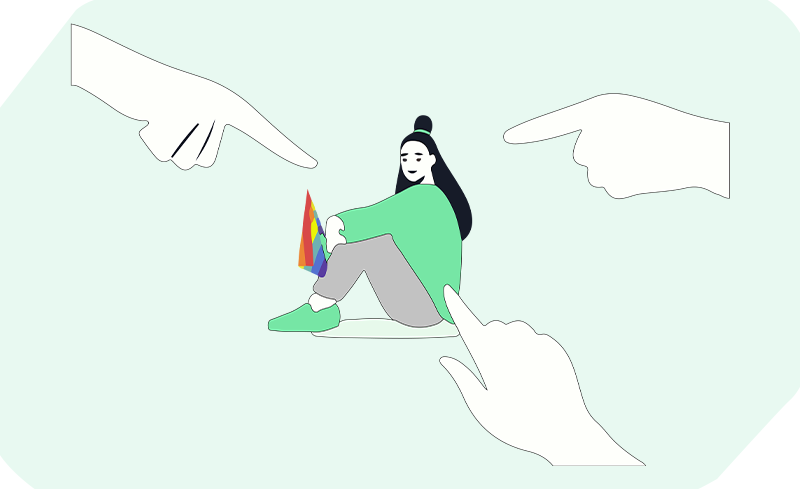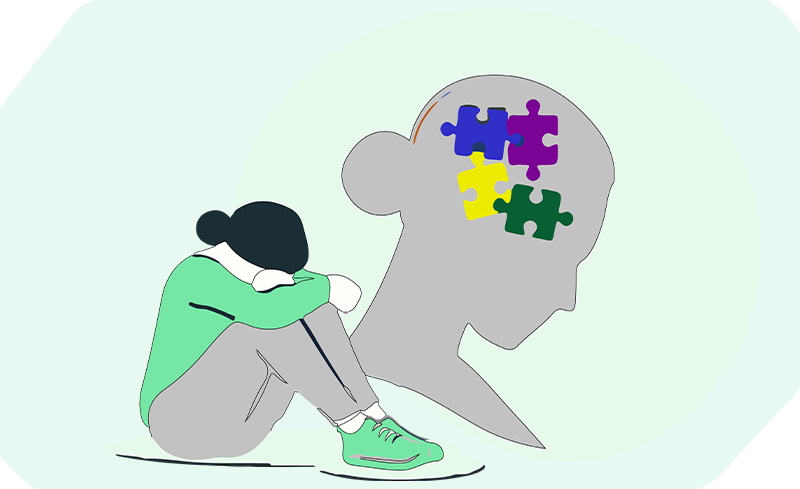LGBTQIA+
The LGBTQ+ community, an acronym for Lesbian, Gay, Bisexual, Transgender, Queer, and other identities, encompasses a diverse group of individuals who differ from the traditional expectations of sexual orientation, gender identity, and expression. This community represents a broad spectrum of identities and experiences, each with its own challenges.
Common Mental Health Challenges for LGBTQIA+ Individuals
Therapies We Offer

Affirmative Therapy
Affirmative therapy focuses on promoting self-acceptance and positive mental health by affirming the client’s sexual orientation and gender identity.
Benefits:
- Encourages self-esteem and personal growth.
- Reduces internalised stigma and negative self-concepts.
- Provides a non-judgmental, supportive space for identity exploration.

Gender-Affirming Therapy
Gender-affirming therapy provides support to individuals exploring their gender identity and helps them navigate social, medical, and legal transitions.
Benefits:
- Helps develop coping strategies for societal pressures or discrimination.
- Provides guidance through medical and social transitioning processes.
- Improves emotional well-being by affirming the individual’s true gender identity.

Trauma-Informed Therapy
Trauma-informed therapy recognizes and addresses the impact of past trauma, which may stem from experiences of discrimination, violence, or rejection often faced by LGBTQ+ individuals.
Benefits:
- Builds emotional regulation skills to manage trauma-related stress.
- Encourages empowerment and control over one’s healing process.
- Reduces symptoms of PTSD, anxiety, and depression related to trauma.
Self Help Tools

Six Thinking Hats Technique
- Organising concepts into distinct groupings helps bring thoughts to clarity.
- Diverse perspectives Encourages looking at all sides of an issue.
- Encourages collaboration and diminishes discrimination.
- Promotes innovative ideas and inventive solutions.
Myths and Facts

Myth 1
LGBTQIA+ people can be cured through therapy or religious practices.
Benefits:
- Being LGBTQIA+ is not a mental illness, and no legitimate medical or psychological organisations support so-called conversion therapy. In fact, such practices are harmful and have been widely condemned. LGBTQIA+ identities are natural variations of human diversity.

Myth 2
Sexual orientation and gender identity are choices.
Benefits:
- Sexual orientation and gender identity are not choices. They are inherent aspects of a person’s identity, much like race or ethnicity. People do not choose to be LGBTQIA+; they simply are.

Myth 3
LGBTQIA+ individuals can’t have fulfilling family lives.
Benefits:
- LGBTQIA+ people can and do have loving families, whether through biological children, adoption, or chosen families. Many LGBTQIA+ individuals are successful parents and partners, creating strong, supportive homes.

Myth 4
Transgender people are "just confused" or "going through a phase."
Benefits:
- Gender identity is a deeply felt sense of being male, female, both, or neither, and is often established at a young age. Transgender people know who they are, and their identities should be respected, not dismissed as confusion or a phase.

Myth 5
Children raised by LGBTQIA+ parents will be LGBTQIA+.
Benefits:
- Sexual orientation is not determined by parental influence. Children raised by LGBTQIA+ parents are no more likely to be LGBTQIA+ than those raised by heterosexual parents.

Myth 6
Bisexual people are just "confused" or "indecisive."
Benefits:
- Bisexuality is a valid sexual orientation, and bisexual people are attracted to more than one gender. Their attraction is not confusion or indecision; it is an authentic part of their identity.

Myth 7
LGBTQIA+ people are all the same.
Benefits:
- LGBTQIA+ people can and do have loving families, whether through biological children, adoption, or chosen families. Many LGBTQIA+ individuals are successful parents and partners, creating strong, supportive homes.

Myth 8
Being LGBTQIA+ is just a trend.
Benefits:
- LGBTQIA+ identities have existed throughout history and across cultures. Increased visibility and acceptance today are the result of societal progress, not a fleeting trend.

Myth 9
LGBTQIA+ people can’t belong to religious communities.
Benefits:
- Many LGBTQIA+ people are deeply spiritual or religious. While some religious institutions may reject LGBTQIA+ identities, many affirm and welcome LGBTQIA+ individuals, and there are numerous faith-based LGBTQIA+ organisations.
Got Questions? We’re Here to Help.
Find the Answers You Need Right Here.
Subscribe to our Newsletter.

ZUNOV
Add Wings to your life
Zunov is dedicated to enhancing mental well-being through personalized therapy and supportive community care. Join us on a journey towards a healthier, happier life.



